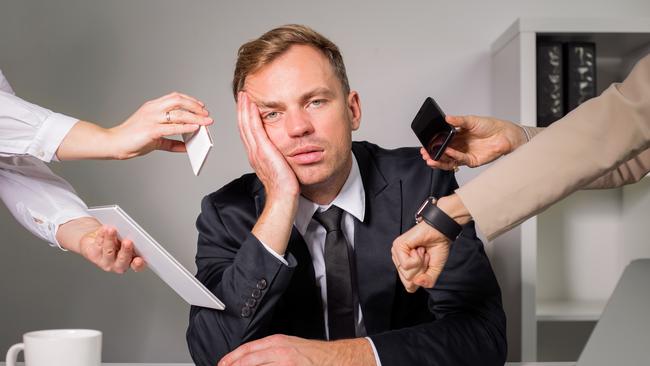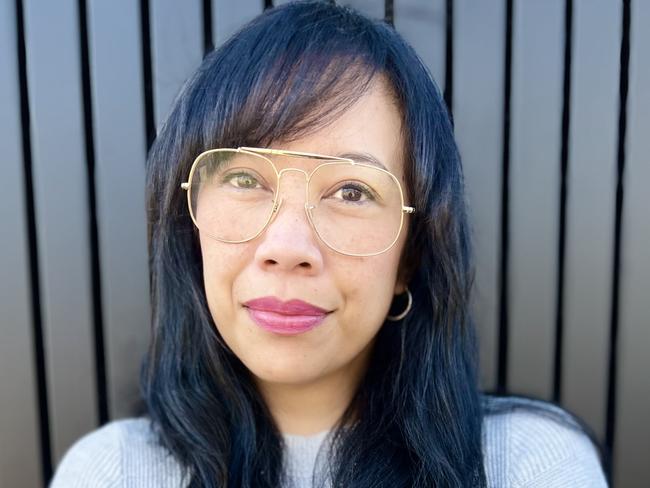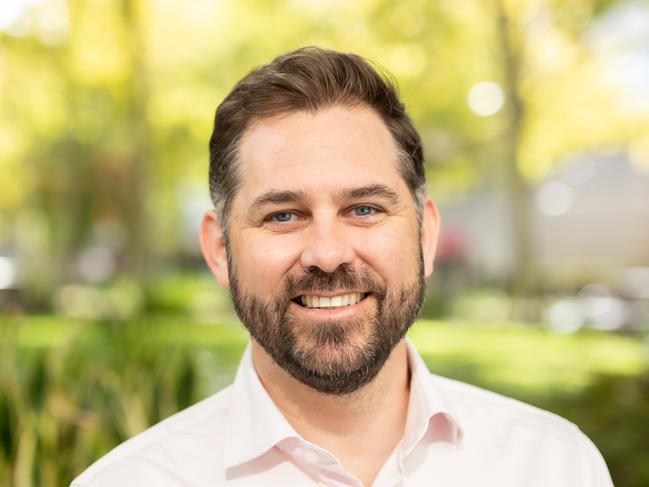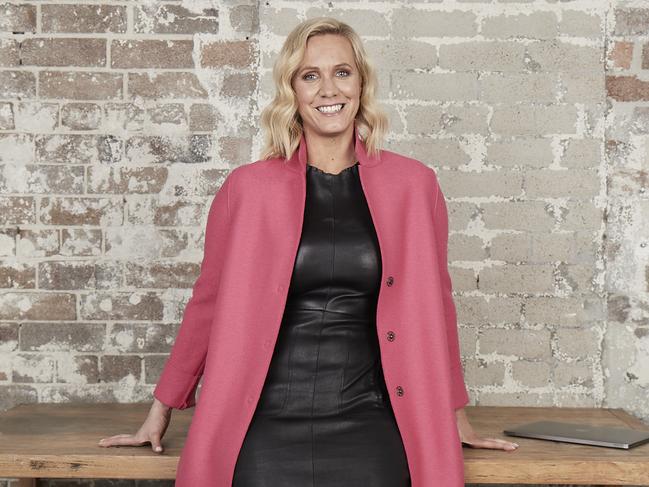Aussies warned about risks of ‘tech stress’ and impact of devices on health
Aussies are being warned about the impact technology can have on their health and work life. See why and tips to switch off.

Health
Don't miss out on the headlines from Health. Followed categories will be added to My News.
When Leola Small fell suddenly ill with an excruciating headache and nausea in May 2018, she headed straight for the ER. The business manager from Sydney had a history of a ruptured aneurysm, but a scan revealed this time she’d suffered a mild stroke.
Now 40, she attributes the frightening episode to stress, in part caused by tech overload.
“I was in a high-pressure job with goals to achieve, and there were no boundaries in terms of communicating,” Small says.
“I was working 14-hour days, required to be ‘always on’, and dealing with multiple tech communications channels. Like a lot of people, I felt like I had to reply after hours to questions via email, SMS and Slack that could have waited until the next day.”

In May last year, Small quit her job to launch her own business, Small Mktg, saying it was essential for the sake of her health and happiness.
“I still work long hours, but not consecutively, and I make sure not to be a slave to tech and devices,” she says.
“Everything we do involves technology, but people need to be aware of the impact that tech can have on their lives. I’m an example of that.”
TECHNO STRESS
Technology has undoubtedly transformed how we work, socialise, learn, and entertain ourselves, but “techno stress” is a potential consequence. A 2022 survey by OpenText revealed nearly 80 per cent of global workers are suffering from information overload, up from 60 per cent in 2020.
Additionally, 27 per cent of respondents said they must access 11 or more accounts, resources, tools or apps daily to access the information they need for their job, also up from 15 per cent two years ago.

Richard McAllister, a leading workplace analyst and managing director of Scalabl, says it is a serious problem.
“The speed of computing ensures we all have devices in the palm of our hands, which in turn means we are constantly notified of new messages and information,” he says. “We also feel compelled to react to new messages.”
McAllister says overload isn’t the only issue.
“The distractions of email, social media and instant messaging can take us away from deep focus and deep work,” he says. “It’s very easy to become less productive and not achieve anything tangible. Busy people are not necessarily productive people.”
Workplace techno stress also risks spilling into your home life. Digital wellbeing and productivity expert,
Dr Kristy Goodwin, says while you have the right to disconnect, that doesn’t mean you have to “digitally amputate” yourself.
In her new book, Dear Digital We Need To Talk, she recommends practical micro-habits to help establish boundaries and unplug, with a top priority being good sleep.
“Sleep is the elixir of life,” she says. “Poor quality or quantity of sleep can have detrimental impacts on our physical health, mental wellbeing and performance. Our screen habits are among the chief culprits sabotaging our sleep.”
Goodwin recommends establishing a “digital curfew” by setting up a sleep reminder on your phone 90 minutes before you want to sleep and enforcing digital-free time before bed. “Another great micro-habit is identifying no-go tech zones,” she says.
“Which are the places and spaces in your home where you’re happy for technology to enter, and which are the sacred spaces that you want to keep tech free?”

Goodwin is a fan of making time in your schedule for mind-wandering.
“I’ve never had a great idea germinate while I was in my inbox, nor have I ever solved a complex problem while in an Excel spreadsheet,” she says. “Great ideas often come to us when we’re ‘off ’ or when we’re bored. But we now fill every single moment of white space we once had with time on our phones or other devices.”
McAllister suggests assessing how much time you’re spending on non-essential digital communication.
“Experiment for three days,” he says. “Observe how much better you perform, with work and family and friends, when the phone is off and you focus your attention on the situation at hand.”
Dear Digital, We Need To Talk by Dr Kristy Goodwin, RRP $32.99 (Major Street Publishing)
Originally published as Aussies warned about risks of ‘tech stress’ and impact of devices on health




